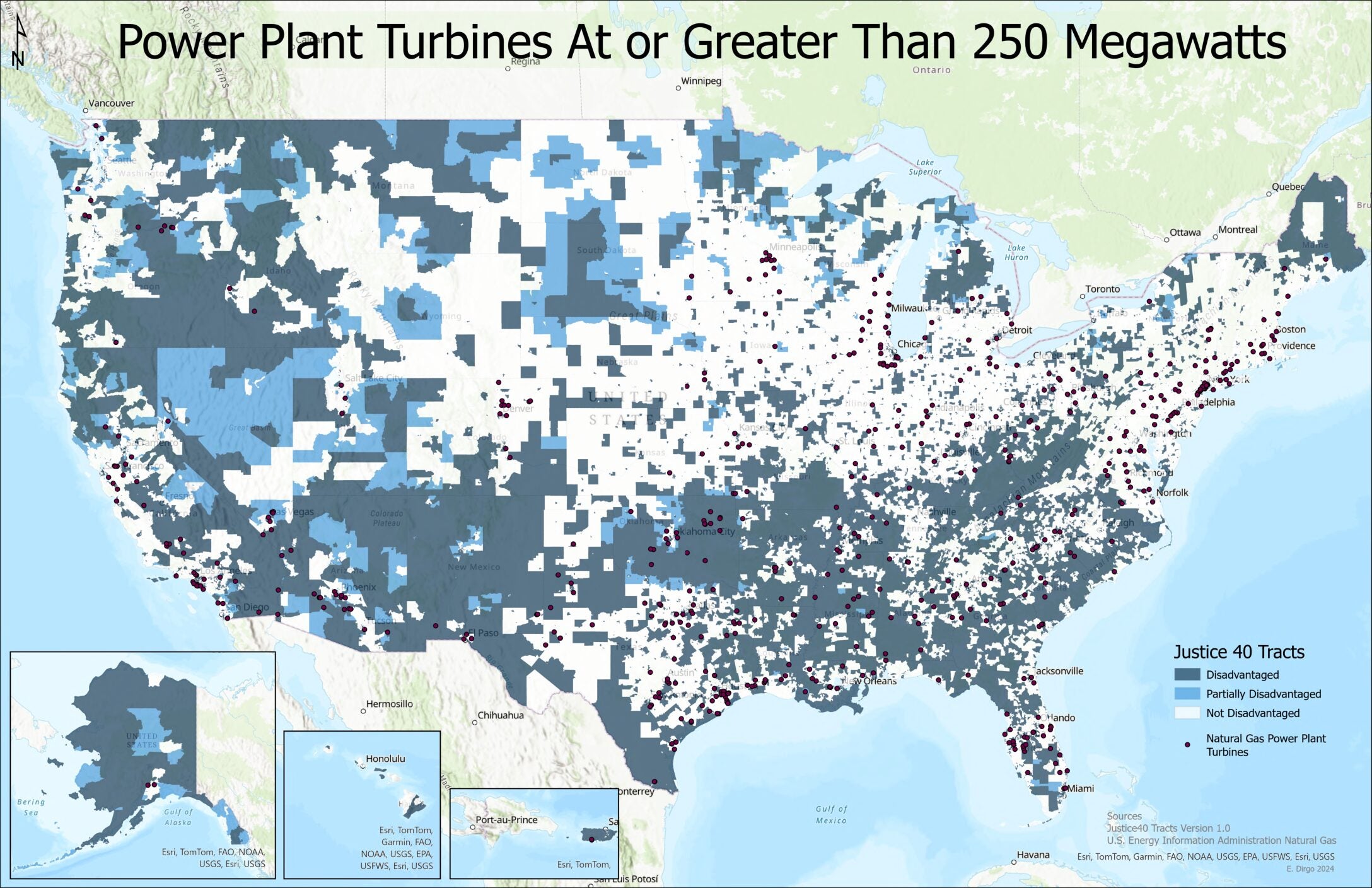EPA Denies Industry Petition to Deregulate Air Toxics-Emitting Combustion Turbines
The EPA’s denial directly addresses environmental and health concerns regarding the impacts turbines’ emissions have on people
Contact
The Environmental Protection Agency today publicly denied an industry petition to delist energy turbines as major sources of toxic air pollution so companies can avoid meeting health-protective environmental standards.
The EPA’s refusal to delist Stationary Combustion Turbines, which generate power at hundreds of major polluting sources throughout the country, will ensure that the owners of these sources cannot dodge pollution control requirements. Environmental groups commended the EPA for resisting pressure from industry lobbyists and keeping important health and safety protections in place.
“Today’s decision upholds critical environmental protections that are essential for safeguarding public health, particularly in communities that have historically borne the brunt of industrial pollution,” said Earthjustice Director of Federal Clean Air Practice James Pew. “Keeping pollution control requirements in place is not just a matter of regulatory compliance; it’s a fundamental environmental justice issue. EPA did the right thing by rejecting industry’s attempt to dodge these requirements and get a free pass to pollute.”
Because of the health and environmental threat posed by hazardous air pollutants, the Clean Air Act sets a high bar for petitions to deregulate a whole category of polluters, such as the one filed by industry groups, including the American Petroleum Institute, to delist stationary turbines. Industry groups have repeatedly attempted to delist stationary turbines without making the required showing. Today, EPA found that the industry’s latest petition fell far short and denied it “with prejudice” — making clear that it would reject any future petition “as a matter of law unless such future petition is accompanied by substantial new information or analysis.” This decision represents a significant step toward making major polluters control their toxic pollution and protecting fenceline communities that are already overburdened.
Stationary combustion turbines are power generators used primarily for making electricity or mechanical power and occasionally for propulsion. They operate similarly to jet engines but are installed in a fixed position or stationary setting rather than being used for aviation. These turbines burn fuel — often natural gas, but also oil or other liquid fuels — to produce high-pressure gas. These turbines are used for power plants, at Liquified natural gas terminals, along pipelines to move oil and gas, and as the workhorse inside the petrochemical infrastructure. Their emissions, including nitrogen oxides, carbon dioxide, and other hazardous air pollutants, are regulated under environmental laws to minimize impacts on public health and the environment.
A recent analysis of existing powerplant turbines and LNG terminals shows that these turbines are concentrated in or near Justice 40 tracts, an indicator of how these facilities’ toxic emissions are affecting primarily environmental justice communities.
Quotes from our partners and clients:
“The EPA’s denial of the petrochemical industry’s bid to ease regulations for these major sources of toxic air pollution is a victory for public health and the environment,” said Jane Williams, Executive Director of California Communities Against Toxics. “This denial ensures that stringent controls on hazardous emissions remain in place, protecting our communities from the dangers of air pollution. The EPA’s commitment to upholding these standards reinforces the importance of robust regulatory frameworks prioritizing our planet’s health and its people over industrial convenience.”
“Turbines are a major source of air toxics in Texas,” said Dr. Neil Carman, Clean Air Program Director for the Lone Star Chapter of the Sierra Club. “This action today by EPA will help clear the air in our environmental justice communities which are disproportionately affected by the emissions of these turbines.”
“Southeastern states are facing a huge build out of gas-fired stationary turbines. It is critically important that these turbines remain covered by federal regulations which protect environmental justice communities from dangerous air toxics emissions,” said Keri Powell, Leader of the Air Program of the Southern Environmental Law Center.

Additional Resources
About Earthjustice
Earthjustice is the premier nonprofit environmental law organization. We wield the power of law and the strength of partnership to protect people's health, to preserve magnificent places and wildlife, to advance clean energy, and to combat climate change. We are here because the earth needs a good lawyer.